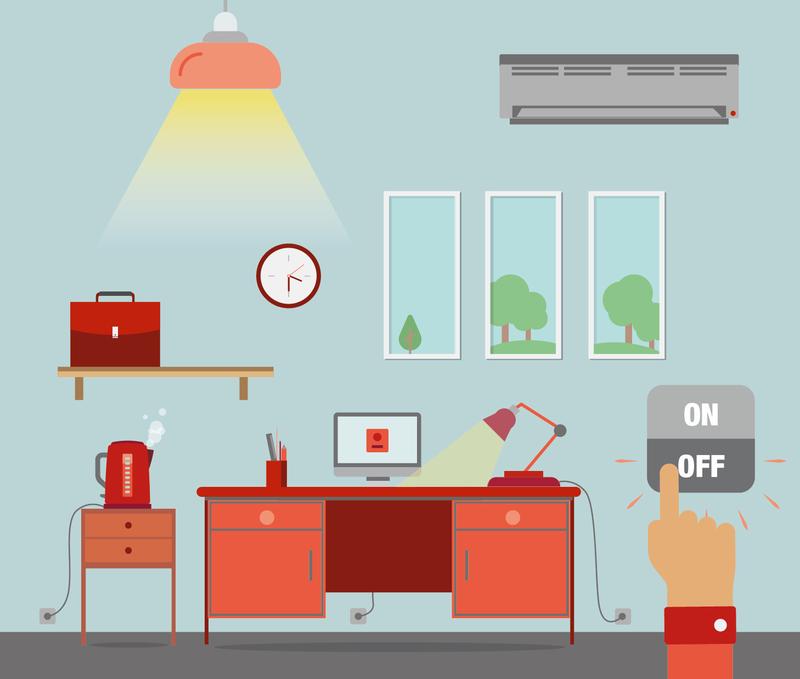Running a business is rewarding but it can also be very difficult. And frankly, you could do without the thought that you're paying more than necessary in energy bills for your office! It might seem low on your priority list, but high utility costs could be a major cost that your burgeoning business just can't afford. Take some simple measures today and you can cut your bills, improve your margins, and get back to what you do best—running an awesome business. We'll look at the three biggest energy drainers in your business today and see whether you can make any smart changes...
Heating and lighting
As temperatures fluctuate throughout the year, it is important to have your thermostats correctly adjusted and timed to come on when heating is needed. If there's anything physically covering radiators and heaters, this might make them produce less heat, so make sure they're clear before turning the heating up higher. And when it gets warmer, tell your employees to start opening windows before they crank on the AC!
As an office, get in the habit of turning off lights and appliances off when they're not in use—it's critical that the last person out leaves the office in darkness. A simple sign next to the light switches will soon have people turning them off as a reflex. Have you considered lower energy bulbs? They could massively cut down your lighting bills!
Computers and electronics
It's a myth that modern screen savers actually "save our screens"—computers today use up huge amounts of power unless they're completely switched off. So avoid standby mode and always do a full shutdown at the end of the day.
Laptops use less energy than desktop computers and investing in a "smart power" or a bulk power supply with one on/off switch will help you cull all those hidden energy suckers, from phone chargers to printers.
Workplace kitchens
Ah, the good old workplace kitchen. It may be a great place to take a coffee break or chat with colleagues, but it's not so good for our energy consumption. You can start to make a difference by regulating the water consumption when you boil the kettle—only use as much water as you need.
Here's a little-known tip: switch off the microwave at the socket after use and ALWAYS close the door when you're finished. The amount of energy needed to keep the inside light on and the clock running can exceed the amount needed to cook your food, depending on how many employees bring cold leftovers to work!
